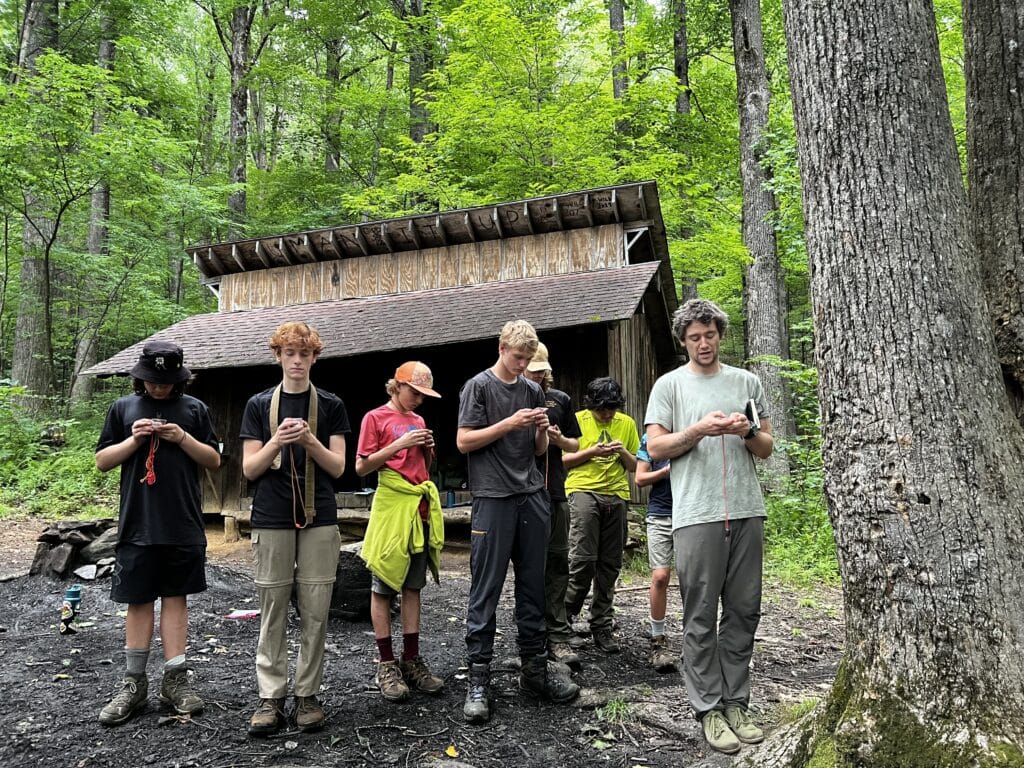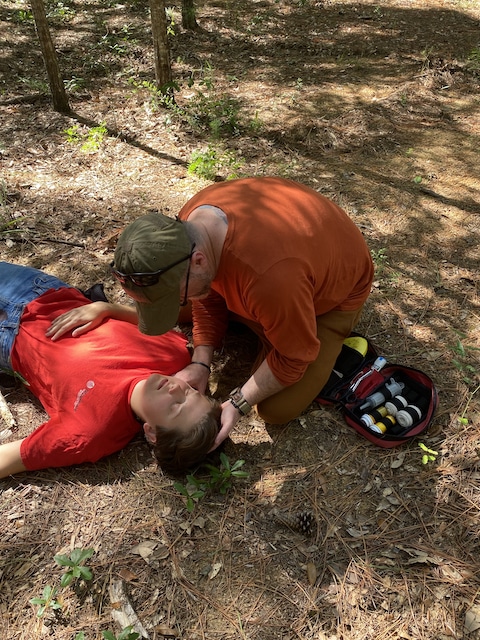Educating the Educators to Ensure Safe and Satisfying Outdoor Adventure and Educational Experiences
Outdoor EducationWhen you’re planning a backcountry-based experiential educational experience for yourself or a child/teen, you want to be sure that the people leading the outdoor program know their stuff. Few things are scarier in life — or potentially deadlier — than being ill-prepared in the wilderness.
To ensure safety and an enjoyable, fulfilling experience, outdoor educators and field instructors must be highly skilled in many facets of outdoor and adventure education, including the following:
- Wilderness medicine
- Map and compass navigation
- Environmental stewardship principles and practices
- Backpacking planning and packing
- Wilderness shelters
- Backcountry cooking, water purification, and food safety
- Paddling techniques and boat safety (canoe, kayak, or raft)
- Climbing
- Leadership
One of the reasons we here at The National Center for Outdoor Adventure and Education (NCOAE) excel at delivering safe, enjoyable, and transformative outdoor adventures is that we educate our educators. We provide our field instructors with the training and opportunities to pursue the certifications they need to achieve best-in-class status.

Field Instructors and Guides: There IS a Big Difference
NCOAE outdoor educators and field instructors are not just “guides.” They are experienced outdoor educators with a broad range of responsibilities that include the following:
- Ensuring that students are safe in the backcountry whether they are backpacking, camping, climbing, or paddling (flat, river, or whitewater)
- Delivering instruction in technical outdoor skills including:
- Planning and packing
- Map and compass navigation
- Backcountry kitchen, water purification, and food safety
- Backcountry hygiene
- Shelter/knots
- Bear safety and general wildlife protocols
- Proper paddling techniques when boating (canoe or kayak)
- Delivering instruction in social/emotional leadership skills
- Delivering instruction in environmental stewardship and environmental science
Leveraging Our Expertise to Train and Certify Our Field Instructors
NCOAE is unique in that we educate the educators — the field instructors who are responsible for leading outdoor expeditions and educating students. Our organization has high-level knowledge, skills, and experience to provide the training and certification our field instructors require to ensure quality leadership and instruction in the field:
- All lead field instructors must hold a current Wilderness First Responder (WFR) certification, and assistant instructors must hold a Wilderness First Aid (WFA) certification. We provide these certifications through our own Wilderness Medicine courses and offer WEMT certifications in conjunction with our Emergency Medicine Technician (EMT) courses.
- Our Medical Director, Chris Davis, MD, recently led an in-house American Canoe Association Level 4 Swiftwater Rescue training/certification course on the New River for our instructors.
- We have Leave No Trace (LNT) Master Educators on staff who can provide courses for LNT certifications for our instructors.
- Director of Wilderness Medicine Todd Mullenix is an American Mountain Guides Association Certified Single Pitch Instructor (AMGA SPI).
Common Certifications for Our Field Instructors
Our field instructors commonly hold the following certifications:
- CPR/AED
- Wilderness First Aid (WFA)
- Wilderness First Responder (WFR)
- Leave No Trace (Level 1 or 2 Instructor and/or Master Educator)
- ACA Swiftwater Rescue
Overall, the value this brings to NCOAE rests in our ability to put competent, knowledgeable outdoor educators into the field with our students to deliver our trademark curriculum in ways that are safe and effective. These trainings and certifications not only give our instructors self-confidence. They give us the ability to leverage their knowledge, experience, critical thinking, and good judgment to deliver safe, high-quality outdoor adventure and educational experiences to our students.
– – – – – – – – –
About the Author: Cameron “Cam” Francisco, MEd, is the Associate Director of Outdoor Education at The National Center for Outdoor & Adventure Education (NCOAE). Prior to joining the team at NCOAE, Cam spent 19 years as an independent school educator and administrator. A member of the Association for Experiential Education (AEE), Cam is a certified Wilderness First Responder (WFR) and is certified in CPR by the Red Cross. His hobbies include fishing, soccer, skateboarding, hiking, and camping.
When to Call — or Not Call — for Help During a Wilderness Emergency
Wilderness MedicineIn wilderness or the backcountry, bad things can happen to even the most experienced of adventurers. Truth is, most illnesses and injuries on the trail can be managed by the adventurer, or with the assistance of someone possessing some training in wilderness medicine.
Of course, some injuries and illnesses do pose a threat to life or limb, and in other cases, the person — who for our purposes we’ll call our “patient” — may not even survive without professional medical intervention. It’s those situations in the grey area that leave many outdoor adventurers wondering, Do we call for help or not? You maybe conflicted for several reasons: pride or overconfidence, embarrassment or reluctance to admit weakness, misjudging the severity of the situation, concerns over medical costs, or perhaps you lack an effective means to contact emergency services.
As the ancient adage suggests: “He who hesitates is lost,” and the objective of this post is to equip you with the knowledge and insight needed to arrive at the right decision faster. Here, you will learn when to call for help, the type of help to call for, and the various means of communication you can use to call for help.

Important! Before embarking on any wilderness or backcountry adventure, leave your itinerary with a trusted individual, along with instructions to contact emergency personnel in the event that you fail to return or call on the scheduled date of your return. If you need a visual on how important this is, watch the 2010 film 127 Hours, which vividly illustrates the torment suffered by Aron Ralston, the rock climber who was forced to amputate part of his own right arm after it was pinned between rocks in an isolated canyon in Utah.
Deciding When to Call for Help In The Wilderness
When you or someone in your group suffers a serious illness or injury, toss your emotions aside and focus on the following factors in deciding whether or not to call for help: (more…)
TALK TO US
Have any further questions about our courses, what you’ll learn, or what else to expect? Contact us, we’re here to help!